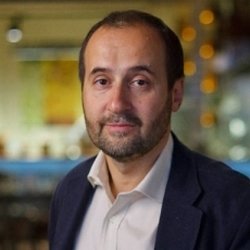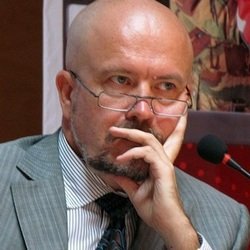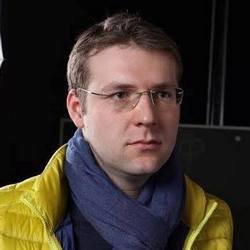Medvedev's New Cabinet: ''The government is becoming increasingly technical body''
Look who's coming: experts assess the proposed by Dmitry Medvedev candidacies for deputy prime ministers of Russia
On May 7, in connection with the inauguration of elected President of the Russian Federation Vladimir Putin, the Russian government headed by Dmitry Medvedev resigned, and Vladimir Putin, after taking office, submitted to the State Duma the proposal to consider the candidacy of Dmitry Medvedev for the post of head of the new government. Later, as reported by a number of central media, Medvedev at a meeting with members of the United Russia faction listed his candidates for the posts of deputy prime ministers of the new government. Realnoe Vremya looked into who is going to replace whom.
The government becomes Putin's executive committee
A number of serious personnel shifts awaits the Russian government following the State Duma approved Dmitry Medvedev's candidacy proposed by the Russian president. The new ''old'' prime minister does not see a number of former colleagues in key positions. Former deputy prime ministers Igor Shuvalov, Arkady Dvorkovich, Dmitry Rogozin, Alexander Khloponin, Yury Trutnev will have to leave their posts, and Sergey Prikhodko will have to leave the chair of chief of the government staff.
At the same time, Medvedev plans to ''strengthen'' the ranks of his deputies with new figures — the vacant chairs are proposed to be occupied by Anton Siluanov, Maksim Akimov, Yury Borisov, Alexey Gordeyev and Konstantin Chuychenko. The rest of the former composition of deputy prime ministers are going to be shuffled, redistributing between them new areas of responsibility. Realnoe Vremya made the scheme of the future personnel shifts, and experts of the edition gave an assessment to the offered candidates.
 Andrey Movchan, financier and director of the economic programme of the Carnegie Moscow Center, finds the candidates proposed by Medvedev quite logical.
Andrey Movchan, financier and director of the economic programme of the Carnegie Moscow Center, finds the candidates proposed by Medvedev quite logical.
''Everything is absolutely logical and is in the trend that we has had before. In this sense, Vladimir Putin cannot be blamed — his actions are clearly consistent. The government is becoming increasingly technical body, executive committee. All odious figures, whether in good or bad sense, are leaving: Rogozin, Shuvalov, Dvorkovich. Generally speaking, people who are ready not to argue, not to put forward their positions, not to act, but simply quietly carry out instructions of the president, to send papers and orders, remain,'' Andrey Movchan noted.
Secondly, according to the expert, Anton Siluanov's nomination to the post of deputy prime minister ''emphasizes that Putin is satisfied with the macro policy and financial policy of the state'', and in this he is in solidarity with the Russian president, considering that our macro and financial policy is ''the best that we have now''. At the same time, Nabiullina's maintaining of her place and Siluanov's coming on Shuvalov's place (most likely, according to Movchan, it was Shuvalov who recommended her, ''because he left well and for long service, but not for some other reasons'') shows that the main tasks of the government and the Central Bank — to maintain the macro situation together.
''The government will have no other tasks. We do not foresee any serious development and movement from the economic point of view. We will move by inertia, crawl where it will turn out — oil is expensive, everything is ok. We no longer need a separate decision-making centre in the form of the government. It remains the presidential administration that works for the president, and everything else doesn't bother him anymore,'' Movchan considers.
''Vladimir Vladimirovich relies on those people whom he knows well''
A member of the Board of the Russian Association of Political Consultants Andrey Kolyadin reminded that when the government was changing he always noticed the same thing: ''Vladimir Vladimirovich relies on those people whom he knows well''. At the same time, 2-3 months ago, the expert predicted an influx of new people by no more than 30%.
 ''In essence, so it has happened. Although there have been total changes: the main part of deputy prime ministers has left, however people who have come instead are well known to Putin. Even Akimov who worked as first deputy chief of the government staff — the person not new, and Borisov who headed the defence procurnment, and Gordeyev whom Putin has known for decades,'' Kolyadin emphasized.
''In essence, so it has happened. Although there have been total changes: the main part of deputy prime ministers has left, however people who have come instead are well known to Putin. Even Akimov who worked as first deputy chief of the government staff — the person not new, and Borisov who headed the defence procurnment, and Gordeyev whom Putin has known for decades,'' Kolyadin emphasized.
Based on the tasks that lie before the new government — it will be ''a very closed and very technical body'', the representative of the association believes. It is no longer a political body that initiates projects. The document, which defines the main development stratagems of Putin's last term, has already been released: ''Until October 18, everyone must provide the agreed with the regions proposals to the government. Therefore, they have very clear and understandable tasks, and they are clear and understandable to Putin people, there are no major shifts! Kudrin did not appear, who was expected, or Belousov, unfortunately, by the way, I consider him one of the outstanding economists.'' Those who have come instead are well known. ''Well, there's Mutko is the only such figure because of whom for years the entire progressive community fought, he has stayed. But I can say about him that Putin does not welcome the pressure and usually shows his point of view in response to the pressure of the society,'' Kolyadin concluded.
The old guard in close contact with the Kremlin clans stays at the helm
Head of the Centre for Development of Regional Policy Ilya Graschenkov considers the shifts in the government of Russia rather unexpected, ''The transference of Kozak on an important new area of work, the coming of Siluanov, Golodets and other new-old actors says that they decided to shake up the personnel bench, but not to change it. In general, at the helm there remains the old guard in close contact with the large Kremlin clans — Chemezovs, Rotenbergs, Kovalchuks, etc. Maybe some rotation will be at the level of ministers.''
The resignation of Dvorkovich, according to him, of course, speaks of certain losses of Medvedev, but this resignation has long been predicted. Rogozin's resignation, though also predicted, but he will not go far away, perhaps even he will be promoted, Grashchenkov believes. Trutnev causes a big question — will he remain Plenipotentiary in the Far Eastern Federal District?
''In general, the composition of the government remains mixed, but with a clearly 'liberal' course. Unfortunately, it is difficult to say anything in general about the new government. It is necessary to unravel a tangle of threads, who stands for whom, who lobbied whom and why, how the Russian economy will be redone now, whether there will be any conflicts between the 'towers' and the resigned officials.''
 ''All these stories are very personal and end with personally Vladimir Putin who somehow has built this new scheme, which Medvedev has to approve officially,'' Grashchenkov emphasized.
''All these stories are very personal and end with personally Vladimir Putin who somehow has built this new scheme, which Medvedev has to approve officially,'' Grashchenkov emphasized.
Position | Before | Now |
Prime Minister of the Russian Federation | Dmitry Medvedev | Dmitry Medvedev |
First Deputy Prime Minister | Igor Shuvalov | Anton Siluanov, former Minister of Finance |
Deputy Prime Minister for Sport and Culture | Vitaly Mutko (was in charge of sport, tourism and youth policy) | Olga Golodets |
Deputy Prime Minister for Transport, Communications and Digital Economy | Arkady Dvorkovich | Maksim Akimov, First Deputy Chief of the Government Staff |
Deputy Prime Minister for Defence | Dmitry Rogozin | Yury Borisov, former Deputy Minister of Defence of the Russian Federation |
Deputy Prime Minister for Agriculture | Arkady Dvorkovich | Alexey Gordeev, former Minister of Agriculture |
Deputy Prime Minister for Industry and Energy | Arkady Dvorkovich | Dmitry Kozak, in charge of construction, housing, social and economic development of regions |
Deputy Prime Minister for Construction | Dmitry Kozak, in charge of construction, architecture, housing and utilities | Vitaly Mutko |
Deputy Prime Minister for Health, Education and Social Policy | Olga Golodets | Tatyana Golikova, Chairman of the Accounts Chamber of the Russian Federation |
Deputy Prime Minister | Alexander Khloponin, in charge of the sphere of nature use and circulation of alcohol products, issues of implementation of the state national policy, improvement of organizational and legal bases of national relations | out |
Deputy Prime Minister | Yury Trutnev, in charge of the extraction of solid minerals, the coal industry, the development of the Far East and the Baikal region, trade and economic relations with foreign countries | out |
Chief of Staff of the Government | Sergey Prikhodko | Konstantin Chuychenko, Aide to the President of Russia |